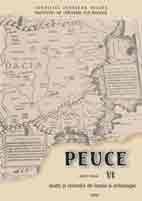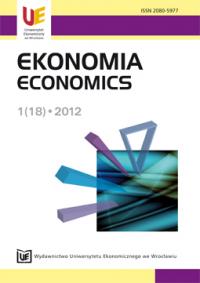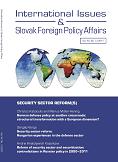
L’étude du matériel archéozoologique provenant d’établissement de Babadag
Studiul materialului arheozoologic din aşezarea hallstattiană de la Babadag
Keywords: Babadag; la culture Babadag; la première Âge du Fer; archéozoologie; cultura Babadag; prima epocă a fierului; arheozoologie
Après une courte présentation de l’ambiance actuelle d’auprès la ville Babadag, on passe à l’étude du matériel faunique représente par 504 restes détermines. Le matériel appartient aux mollusques lamellibranchiates, aux poissons et aux mammifères. On exécute un étude détaillé, morphoscopique et biometrique (voir les tableaux) de chaque espèce. Apres la mise en évidence de ces donnes, on discute l’importance de l’économie animalière des habitants de l’habitat. La cueillette et la pêche, aussi que la chasse, mais surtout l’élevage représentaient leurs occupations. A la fin, on met en évidence l’ambiance probable de ces temps-la.
More...

